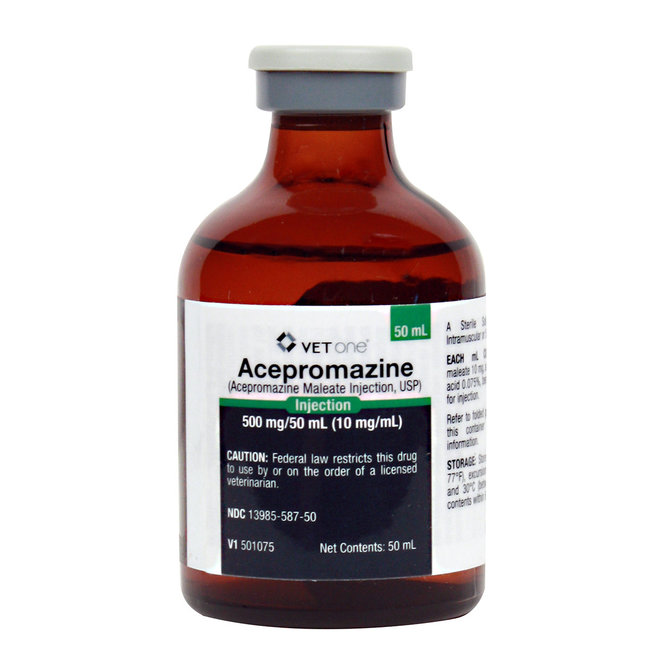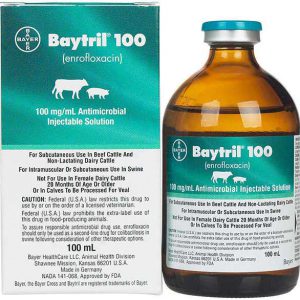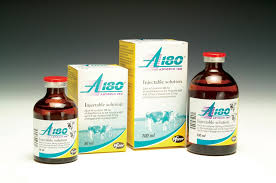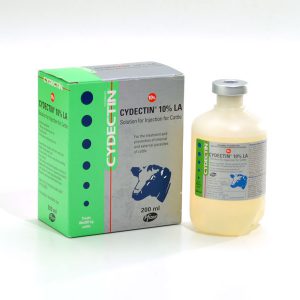Description
Acepromazine Maleate Injection is used for sedation, tranquilization and as a pre-anesthetic agent in horses, dogs and cats. Each ml contains 10 mg Acepromazine Maleate. Can be used as an aid in controlling animals during examination, treatment and minor surgical procedures. Maleate has a depressant effect on the central nervous system and therefore causes sedation, muscular relaxation and a reduction in spontaneous activity. It acts rapidly, exerting a prompt and pronounced calming effect. It is an effective pre-anesthetic agent and lowers the dosage requirement of general anesthetics.
Acepromazine Maleate Injection may be given intravenously, intramuscularly or subcutaneously. The general dosage of Maleate Injection for horses is 2-4 mg per 100 lbs body weight; dogs 0.25-0.5 mg per lb body weight; for cats 0.5-1.0 mg per lb body weight.
Not for use in animals hypersensitive (allergic) to it or other phenothiazines. Use with caution in debilitated or geriatric animals and those with liver or heart disease. Do not use in pregnant or lactating animals (female animals nursing their young) unless benefits outweigh the risks. Do not use in animals with hypovolemia (low blood volume), anemia, or shock. Do not use in animals with tetanus or strychnine toxicity. May cause seizures. Do not use with animals known to have seizures or are having medical procedures known to cause seizures (e.g., myelograms). When used to aid in restraint, the sedative effect can be overridden and the animal may bite or jump unexpectedly. Promace is an inappropriate medication for the treatment of aggression since it can make aggressive animals less predictable, and can interfere with training. Causes low blood pressure and inability to maintain proper body temperature. ACEPROMAZINE ACEPROMAZINE ACEPROMAZINE ACEPROMAZINE
Does not provide any pain relief. Giant breeds, greyhounds, and boxers may be more sensitive to its effects; terriers may be less sensitive. Effects may last 6-8 hours, and results may not be consistent when given orally. Consult with your veterinarian regarding the physical examinations and laboratory testing necessary prior to and during treatment with promace.
Drug, Food, and Test Interactions:
Consult your veterinarian before using promace with vitamins, supplements, atropine, central nervous system (CNS) depressant drugs (such as barbiturates, narcotics, and antidepressants), organophosphate dewormer or insecticide, kaopectate, Pepto-Bismal, other antidiarrheal mixures, antacids, propranolol, and epinephrine. May have an adverse heart reaction if used with quinidine. Phenytoin levels and procaine activity may be increased if used with promace.https://kihorsemed.com/





Reviews
There are no reviews yet.